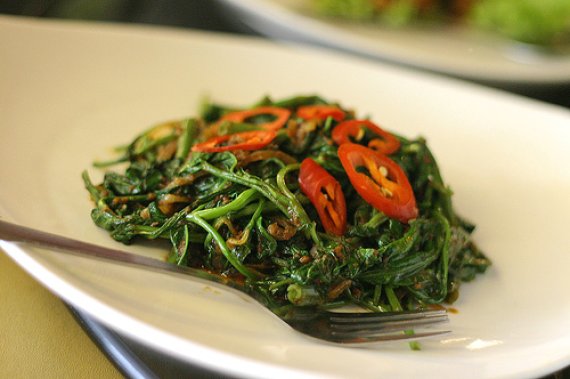Water morning glory with resistant bacteria (credit)
On eight types of herb in the laboratory, researchers at the Central Veterinary Institute (CVI) found resistant bacteria. Combing the hereditary material of these bacteria, they went in search of the genes responsible. Their work will soon be published in the International Journal of Food Microbiology.
Mint and parsley were among the herbs involved, but the researchers also studied the less well-known water morning glory and betel leaf. As chefs commonly use these herbs raw, it is possible that live bacteria could end up in our intestines. Once there, they could pass their resistance genes to other bacteria. Nonetheless, the results do not mean that we have to give up Thai food, says Dik Mevius, senior researcher at CVI. For one thing, the germs found by his team have never been seen in patients in western Europe. Moreover, they are not resistant to the ‘last line of defence’ provided by antibiotics.
While no immediate danger exists, the results did cause some astonishment. ‘It is striking that we found such resistant germs on fresh herbs,’ says Mevius. ‘The image associated with fresh herbs is that they are healthy and tasty.’ > The image associated with fresh herbs is that they are healthy and tasty — Dik Mevius
It is still unknown how exactly the herbs were contaminated. This may have happened through the use of human or animal faeces as fertilizer during cultivation. Other possible sources are sprinkler systems and the contaminated hands of growers.
Over the past 20 years, resistance to antibiotics has increased considerably all over the world, and especially in emerging countries. In these states there is enough money for antibiotics, but the procedures for using them with care are lacking. In addition, resources to guarantee food safety are limited. It became painfully clear that plants are capable of spreading bacteria back in 2011, when hundreds of people fell sick in Germany due to the EHEC bacterium. Sprouted foods turned out to the vehicle by which the bacterium had spread. These foods are eaten raw in salads.

